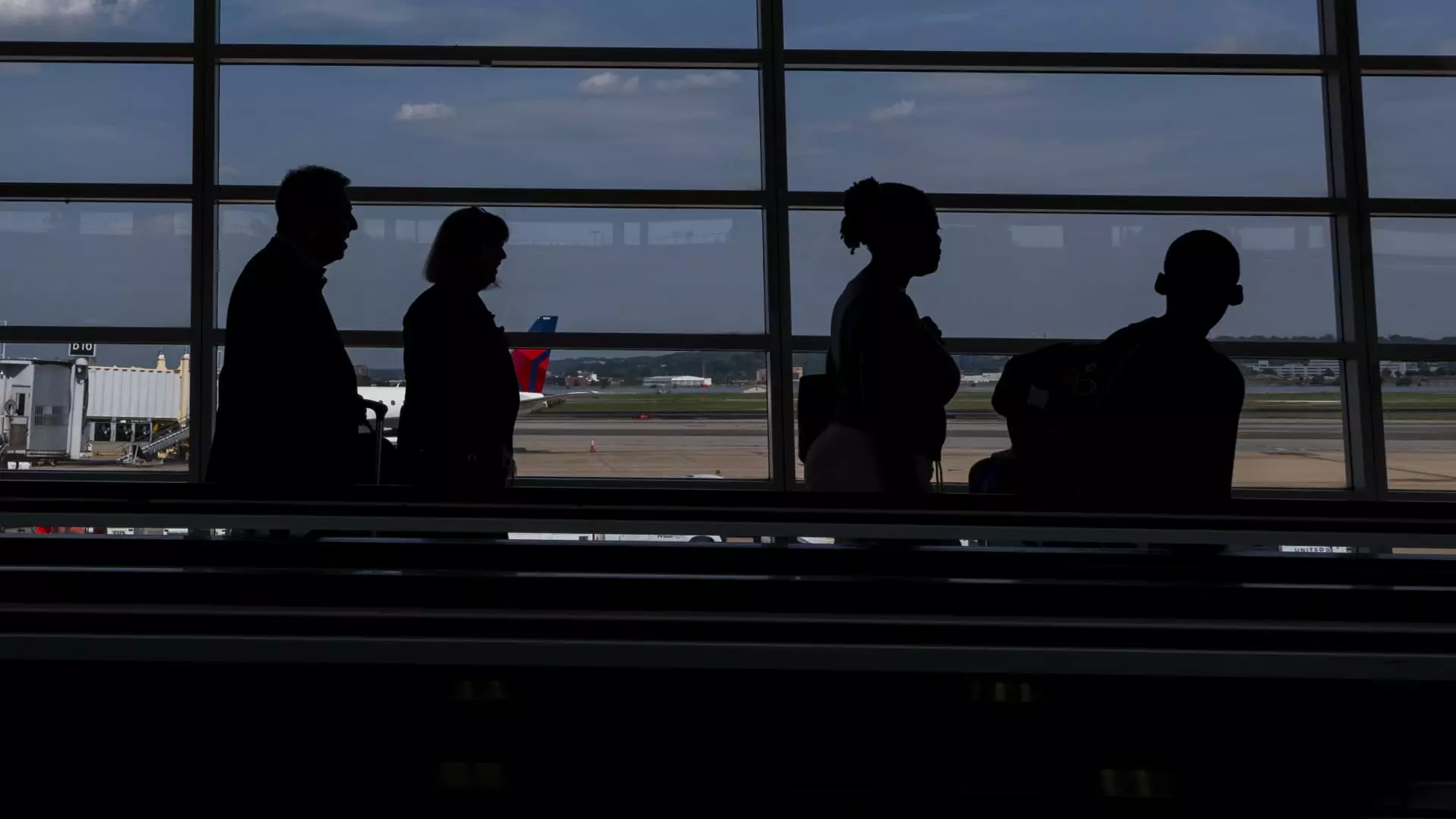Thanksgiving has long been a cherished holiday for American families, often marked by travel to warmer climates or iconic destinations. However, for many, including Emily Reeve and her husband from Portland, Oregon, this year is markedly different. With a young toddler and apprehension surrounding the post-election climate, they’ve opted to remain at home instead of embarking on their conventional trips to places like Florida or Disneyland. Their decision reflects a broader trend among many Americans who are redefining their travel plans in light of the anxiety surrounding the upcoming 2024 election.
The couple’s concerns emphasize a fear of potential unrest following election results, echoing sentiments that are influencing a significant number of voters. The anticipation of riots, protests, or unforeseen civil disturbances are causing families to reconsider their travel options, and this shift could significantly impact the tourism industry.
Industry experts are noting a palpable shift in consumer behavior. As Election Day approaches, many travelers are absorbing a wave of political apprehension that transcends the usual holiday stress. Delta Air Lines CEO Ed Bastian acknowledged this phenomenon recently, stating that historically, consumers have shown a tendency to stay home during elections. This hesitation is not unfounded; tremors of political discord have sparked reactions in the past, causing travel demand to drop before rebounding after elections.
Furthermore, recent surveys indicate that a significant percentage of U.S. adults—64% as reported in a recent poll—are hesitant about traveling domestically due to concerns about unrest. A notable fraction indicated they would only stay home if Vice President Kamala Harris wins, while others expressed apprehension regardless of the outcome. This highlights a divided electorate whose sentiments are heavily influencing travel decisions this November.
As tensions rise heading into the election, security measures are expected to tighten, particularly around polling places and airports. The Transportation Security Administration (TSA) has reiterated its commitment to ensuring traveler safety, and the presence of law enforcement personnel at airports may increase. Travelers can anticipate a higher level of vigilance as evaluative protocols come into play, designed to safeguard individuals during this politically charged season.
Travel agencies are also taking note of these developments, with some reporting declines in domestic flight bookings around election time. However, there’s an interesting juxtaposition; as planning for the election week slows down, booking trends for the following weeks post-election anticipate a significant spike. This suggests that although the immediate outlook may appear bleak, many individuals retain hope of venturing out once the dust settles.
The reluctance to travel is not confined to logistics—it’s unraveling family dynamics too. Many families face not only the reality of political discourse but the fear that it might disrupt family reunions. Recent research reveals that anxiety over potential political clashes is more pronounced among younger adults; approximately 38% of Gen Z and 29% of millennials anticipate family disagreements due to differing political views. In contrast, a much smaller segment of Baby Boomers share these concerns.
These generational divides are leading some families to cancel or alter their holiday plans altogether, opting instead for a more subdued and peaceful holiday at home. This trend is further fueled by anxieties related to job security, especially among federal employees apprehensive about potential government shutdowns and furloughs following the election. Thus, financial considerations, combined with political ones, are ushering in a season characterized by reevaluation and strategic caution.
As the 2024 election looms, Americans find themselves caught between a desire for escape and a nagging fear of unrest. The upcoming holiday season stands to be a telling barometer of the national mood. Will families embrace traditional holiday gatherings, or will many choose to retreat into the safety of their homes?
With travel bookings fluctuating and families grappling with the implications of political outcomes, the landscape around Thanksgiving travel is poised for unpredictable shifts. Though many may wish to retreat and wait for the storm to pass, there remains an underlying thread of resilience: the hope for peace and unity post-election.
Ultimately, how individuals navigate their travel in this politically charged atmosphere will reflect broader societal sentiments—profoundly influencing not only their personal holiday experiences but also the recovery trajectory of the travel industry as a whole in a tumultuous political climate. As families adapt their plans to accommodate both safety and political realities, the definition of togetherness may evolve, leading to new traditions in a changing world.

